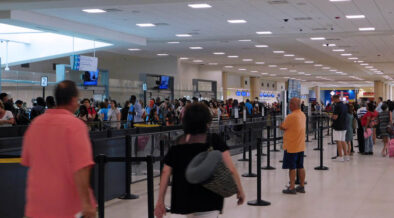Migration is highly influenced by economic instability and job opportunities, experts said.
Leveraging the skills of the Puerto Rican diaspora and fostering a collaborative spirit is essential to ensuring long-term resilience, experts say.
The decline in Puerto Rico’s population, driven primarily by low birth rates and migration, presents significant challenges for economic growth and labor force sustainability. These demographic shifts are reshaping the island’s social and economic landscape, highlighting the need for policies and strategies to address the island’s evolving needs.
A recent webinar hosted by the Financial Oversight and Management Board for Puerto Rico examined these trends. Experts Angélica M. Rosario-Santos and Hernando Mattei from the University of Puerto Rico’s Medical Sciences Campus discussed the implications, alongside Amilcar Matos-Moreno, a postdoctoral scholar at Penn State’s Population Research Institute.
Puerto Rico’s population has shrunk significantly in recent decades, from a peak of 3.8 million to about 3.1 million.
“Our analysis suggests that migration, while ever present, is highly influenced by economic instability and job opportunities,” Rosario-Santos and Matos-Moreno said following the presentation.
“There is clear evidence of this in both the time series for total population and for net migration. Thus, any hope of stopping the ongoing migration wave must focus on access to good jobs and affordable living, for example access to housing in line with salaries,” the experts said.
One striking statistic is the 15% drop in population between 2010 and 2020. During this period, more than 500,000 Puerto Ricans emigrated, primarily to the U.S. mainland. Recent years have seen some return migration and an influx of remote workers attracted by tax incentives. However, these numbers are insufficient to offset the population loss, leaving gaps in the workforce and shrinking consumer markets.
Puerto Rico’s aging population further compounds these challenges. The median age has risen to 44.9 years, compared to 38.2 on the mainland, and by 2025, 28% of residents are projected to be 65 or older. This shift increases demand for health care and elder services while shrinking the working-age population.
The island’s fertility rate is 1.2 children per woman, far below the replacement level of 2.1. This means fewer young people are entering the workforce, heightening the strain on Social Security and public health systems.
“Puerto Rico has reported fewer than 2.1 children per woman of reproductive age since 1998, but because of the demographic momentum, Puerto Rico continued increasing its population up to 2010,” said Rosario-Santos and Mattei. “The reduction in births is dramatic, shrinking the base of the population pyramid over time.”
The labor force has also contracted, with participation rates hovering at only 39%, compared to 62% on the mainland. This reduction is affecting key sectors such as education and health care. For instance, declining birth rates have led to school closures and reduced need for educators, while the health care sector is under increased pressure due to the aging population.
Annual economic output has also been adversely affected, with gross domestic product growth lagging behind many U.S. states. However, industries such as renewable energy and digital services show potential for growth, particularly with targeted investments and policy support.
Experts at the webinar emphasized the need for proactive measures, including policies to attract young professionals, encourage family growth and invest in eldercare. Community organizations are also working to address immediate needs and advocate for broader reforms.
Despite the challenges, Puerto Rico’s demographics present opportunities for innovation. Strategic investments in health care, technology and renewable energy could mitigate the economic impact of population decline.
Leveraging the skills of the Puerto Rican diaspora and fostering collaboration are key to building long-term resilience, the experts noted.
This content was produced by News is my Business staff members. Send questions, comments, and suggestions to [email protected].
Source link : http://www.bing.com/news/apiclick.aspx?ref=FexRss&aid=&tid=67614c5146fa4bc7a3e2507d11e4001d&url=https%3A%2F%2Fnewsismybusiness.com%2Fpuerto-ricos-shifting-demographics-challenges-and-opportunities%2F&c=18207558534473497004&mkt=en-us
Author :
Publish date : 2024-12-16 20:02:00
Copyright for syndicated content belongs to the linked Source.
